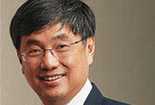This excerpt is taken from a sharing by Prof Soo Khee Chee at the inaugural Academic Medicine Research Institute’s (AMRI’s) Research Mentors’ Forum held on 24 Nov 2014.
This excerpt is taken from a sharing by Prof Soo Khee Chee at the inaugural Academic Medicine Research Institute’s (AMRI’s) Research Mentors’ Forum held on 24 Nov 2014. Drawing insight from his personal experiences, Prof Soo addressed a group of mentors and mentees on what they can impart and learn on their research mentorship journey.

Prof Soo Khee Chee
Deputy Group CEO (Research & Education), SingHealth
Senior Vice Dean, Clinical, Academic & Faculty Affairs, Duke-NUS
Many of us owe our success largely to wise and generous mentors. There are, however, things that I did not learn from my mentors – not because they were unwilling to teach me, but because I was not smart enough and it was too painful to push myself to my limits then. It took me many years to learn the philosophies and tactics of driving medicine advancement in a complex system. Here are seven lessons I learnt the hard way:
1. Do not try to win all the battles at once (or, better to lose a battle but win the war)
You cannot possibly win all battles. It is better to look at the bigger picture – the war. Most of the time, we have constraints at work and therefore must accept trade-offs and compromises. We have to respect others’ concerns, interests and limitations. Timing, resources and stakeholders’ support all play a part in your battle strategy. There are always many battles to fight; do not tie yourself to that one battle. Instead, make sure things are moving in the right direction and that you are winning the war.
2. Do not try to kill your bosses (or worse, your mentors) to succeed and vice versa
Unfortunately, sometimes in clinical departments, “fighting” takes place among senior and young doctors. It is not uncommon that mentees want to edge their mentors out, or that mentors want to sideline their mentees. Such conflict is likely rooted in the Asian culture of so-called “no two tigers in one mountain”. This is not the way to develop a mentor-mentee relationship and such infighting is counter-productive. We need to foster an ecosystem that is healthy enough to accommodate more than one “tiger”, which is absolutely necessary for the organisation to move forward on to the global stage.
3. Better to have friends than enemies (especially strategic ones)
Being a doctor, especially a surgeon, has its spontaneous advantage in building deep relationships and a high level of trust with one’s patients. It is wise to leverage on such close relationships to present expert advice or exert influence in a professional way.
4. Few good men (and women)
A few good men and women are indispensable for the enterprise to succeed. During the establishment of Duke-NUS, it was a few good men and women who firmly believed and relentlessly insisted on going the way of an Academic Medical Centre. It was equally critical that the few good men and women gave up their posts at Duke Medicine and came to Singapore to set up the school from scratch. The journey to Academic Medicine is frustrating in so many ways, but we have to constantly remind ourselves that before us there were a few good men and women who took the risks and pain and still continue to do so today.
5. You do not need to shout to be heard (though you may have to bang tables sometimes)
With medical expertise, extensive contacts with patients and frontline workers, and years of professional experience, physicians may have in-depth understanding on certain issues. When a physician spots an inherent flaw in a health policy or mandate, he or she should be honest about it and try all channels to make him or herself heard by policy makers or management.
6. Develop and accept a long and broad view
The path to Academic Medicine is never easy. To achieve it, we need to develop and accept a long and broad view. A few years back, there were no Duke-NUS, Academic Clinical Programs or Academia. It is with the long and broad view we took then, and our persevering efforts that we were able to move forward with Academic Medicine.
7. Deep convictions must be matched with lifelong commitment
People ask me how we can become successful in fund raising. The truth is that donors know a lot about us – whether we are worth the support and whether we hold any credibility. The credibility is based on the lifelong commitment to the cause that we want others to support. So, my advice is stay true to the cause, ensure that we adopt a long-term view to it and have a lifelong commitment to match what we are saying now.
